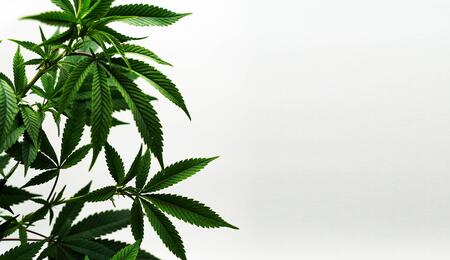Occupy LA Pot Problems

Pot creates a rift between LA's occupiers, increasing tensions at an already heated scene.
Pot creates a rift between LA's occupiers, increasing tensions at an already heated scene. As the Occupy Los Angeles protesters begin to encounter pressure from a formerly welcoming city administration to think about ending their occupation, the group also appears in danger of being ripped apart from within over the issue of pot-smoking.
The Los Angeles Times commented in a Friday editorial, "Four weeks after protesters converged on the Civic Center, they are wearing out their welcome. Even some of the city's most liberal politicians, who initially embraced them, are trying to figure out a graceful way of getting them to go home. ... But it's hard to negotiate with a headless group united only by its resentment toward bankers, corporations, Congress, the media and others in positions of power - including the police."
"It would be best for everybody, including the demonstrators, if the impasse could be resolved without resorting to police in riot gear," the paper urged. "Another location for the protest should be found, and if the participants are organized enough to put out a joint statement, they're organized enough to negotiate a peaceful departure." An internal mutiny over the issue of pot-smoking, however, has raised doubts as to just how unified the protesters really are, and whether any person or group among them is in a position to negotiate on behalf of the entire occupation.
As described by journalist Natasha Vargas-Cooper, "Around 8 p.m. on Wednesday night, the 300 people who have been occupying the lawn of Los Angeles City Hall for the past three weeks split themselves into two hostile camps." She explains that "drug use has been a key conservative talking point used to undermine the various Occupy camps around the country," but that in Los Angeles, "smoking weed has become a wedge issue dividing the camp into increasingly entrenched groups."
"Rumblings of dissent and palpable animosity had been mounting in the camp throughout [Wednesday] afternoon," Vargas-Cooper reports. "Informal meetings were held around the clock to hotly debate an issue that had factionalized the camp: weed. . . . Occupy LA's decision-making body, the General Assembly, has been responsible for conducting the encampment's business.
... But on Wednesday, a large group of dissenters decided to occupy the General Assembly's usual outdoor meeting space and assert themselves as the new regime." "A large group, made up almost entirely of men, stood in a circle denouncing the General Assembly and their efforts to ‘police' the camp, particularly regarding drinking or smoking weed," she continues
. "Anyone who spoke in favor of a code of conduct was aggressively booed. ... When a runner from the General Assembly made the announcement that they would begin the meeting, he was thunderously shouted down, then someone yelled out ‘The GA is dead!' and the crowd erupted in both celebration and shock: ‘We don't want you or your fucking procedure!'"
She goes on to quote one of the protest's original organizers as explainng that "on one side there's the hardcore Politicos-Get-Shit-Done process freaks and on the other are people who think they are starting a new society." "Who makes the rules?" Vargas-Cooper asks. "Who enforces the rules? Going even further: should there even be rules? Is this a narrowly focused social movement bent on economic reform through massive but nonviolent participation? Is it a petri dish of something new? There is a wing of the Occupy LA that sees their encampment as a radical new mode of living; one that not only rejects income inequality, but any sort of action that enables one group to represses any other. This means contempt for anything like a parliamentary up or down vote, or adopting the same drug laws as ‘the outside." Muriel Kane Muriel Kane is an associate editor at Raw Story.



